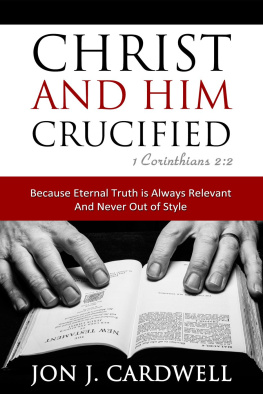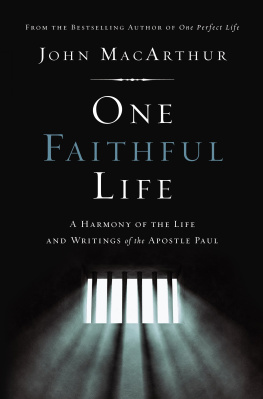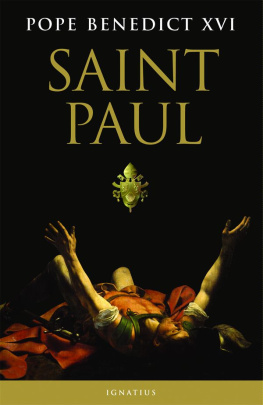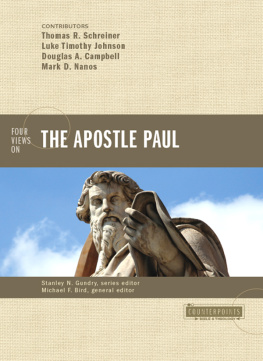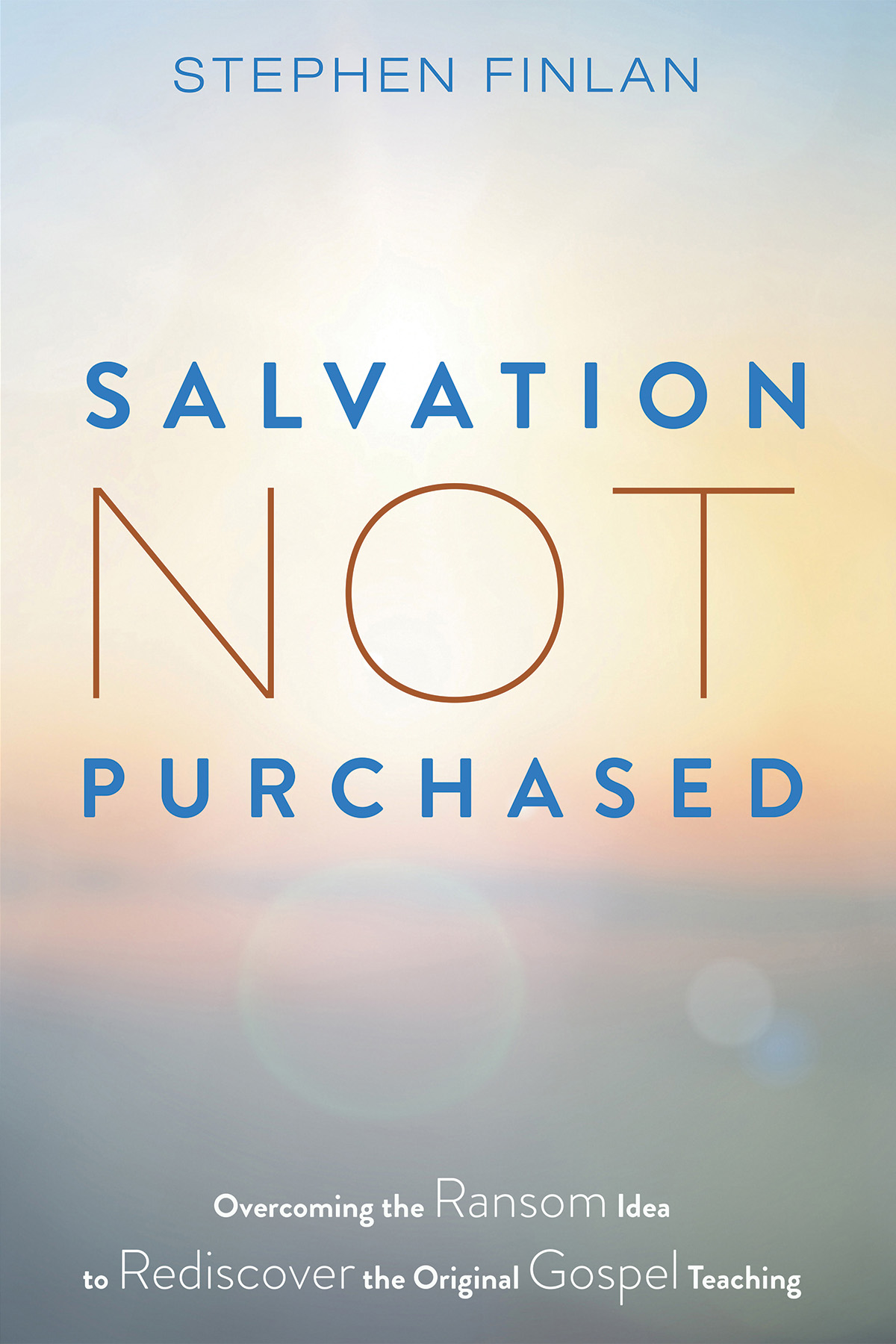Stephen Finlan offers a lucid and thorough critique of the view that Christ died for our sins is a central tenet of Christianity. He shows that neither Jesus himself, nor much of the New Testament, nor the Greek patristic tradition thought so. Sacrificial metaphors, used in diverse ways by the apostle Paul, had an afterlife in Christian theology, abetted by psychological and social needs. This will be a provocative and illuminating read for pastors and lay Christians alike.
Harold W. Attridge
Yale Divinity School
Passionately rejecting those aspects of traditional atonement theory that implicitly turn God into a severe, sacrifice-demanding Father, and instead, pointing out the biblical evidence that reveals the original teaching of Jesus as emphasizing a generous and merciful loving God, Stephen Finlans remarkable slim volume, Salvation Not Purchased , must absolutely be read and reflected on by all who preach and presume to teach others how to preach the Christian doctrine of salvation.
Robert J. Daly, SJ
Boston College
By puttingand keepingJesus square at the center, Stephen Finlan gives us an extraordinarily helpful treatment of atonement theology. Salvation Not Purchased is concise and accessible, but also rich in detail and analytically strong. Finlan starts with the right questionwhat do we learn from Jesuss life and teaching about salvation?and then shows how satisfaction atonement theology distorts the gospel. A book with strong ethical implications.
Ted Grimsrud
Eastern Mennonite University
In this book, Stephen Finlan redeems the traditional theories of atonement and hell by ridding them of their manipulative bad news gospel message that depends solely on the economic sacrifice of an innocent victim before God can or will forgive sin. Instead, by exploring the Bible in its original languages and contexts, Finlan offers readers a gospel message that is truly good news from beginning to end. He presents these significant and provocative ideas with a pastoral heart and extends to his readers practical suggestions for living out the good news for the glory of God and for the furtherance of the divine kingdom. Salvation Not Purchased is a beautifully written, accessible, practical, and theologically stimulating book, one that I plan on using with church groups and in my undergraduate college courses.
Sharon Baker Putt
Messiah College
In Salvation Not Purchased , Steve Finlan continues to popularize his insightful research on Pauline atonement metaphors, making it accessible to a broader audience of ordinary Christians. In fact, one does not need to agree with his interpretation of animal sacrifice, nor with his type of incarnational Christology or his use of the gospels, in order to appreciate his zeal to correct and present alternatives to an entirely unhealthy Christian theology of penal substitution. Finlans small book is a biblical theology approach of sorts, a plea for a decent, biblically based, liberal theology of salvation through Christ, and an interesting reflection on the psychologically damaging consequences of a conservative atonement theology.
Thomas Kazen
Stockholm School of Theology
Stephen Finlan takes the reader through Scripture and into the early church fathers and even some modern psychology to put to rest the historical misunderstanding of the metaphor responsible for thinking that Jesus must die for the Father to forgive the sins of humanity. Blood and sacrifice are powerful metaphors for the Jewish audience, but Jesus is the healer, co-creator, and goal of Christian life who reveals in his person the unbounded healing mercy of God. This book is a treasure for pastors preaching as for anyone interested in sound exegesis to dispel misguided notions of atonement and sin that have prevailed too long in Christian communities.
Terence McGoldrick
Providence College
Salvation Not Purchased
Overcoming the Ransom Idea to Rediscover the Original Gospel Teaching
Stephen Finlan
Assumptions about God
I n upcoming chapters, I will address the genesis of the images of sacrificial atonement and ransom. For now, I can mention that our earliest source for the sacrificial and purchase metaphors for the death of Jesus is the Apostle Paul, who was writing in the s AD. Paul is also the source of that extremely unfortunate slogan: you were bought with a price ( Cor :; :). Pauls successors took his metaphors quite literally, blending the notion of sacrifice with the image of ransom and coming up with the idea of the death of Jesus as a ransom payment for the sins of humanity, the idea called atonement in theological circles.
In this chapter, I want to respond to the idea of atonement that is popular today , by contrasting it with the teachings of Jesus. My argument is less with Paul than with his more literal-minded successors, and with the crude atonement ideas that developed over time. It is the purchase concept that is most problematic.
The main problem with teaching that Jesus death paid for human sin is that it slanders the character of God the Father! If God was either unable or unwilling to forgive without a payment in blood, then God was either weak or cruel. Both are false. God was not compelled to demand that a payment for sin be made, nor was God defending Gods honor. Such ideas emerge when people apply human laws and attitudes to God.
Somebody had to pay is based on a series of mistaken assumptions. One is that God is stern and demanding, while Jesus is merciful and kind. This goes against Jesus own teachings about his similarity to the Father: Just as the Father raises the dead and gives them life, so also the Son gives life... Whoever has seen me has seen the Father (John :; :). There is no spiritual contrast between the Father and the Son; they have the same love . This is the good news: there is a circuit of love that flows from the Father, through the Son, to the Spirit, into us, and then among us.
Of course, no Christian wants to say that God is either cruel or weak. Yet Christians commonly fall into that trap unawares, accepting formulas that Christian authorities have told them they must believe, usually accompanied with a fierce and angry energy. Most believers follow their leaders. Instead, we should reflect upon what we have been taught, and see if it needs to be questioned, in the light of Jesus own focus on love and forgiveness. What did Jesus himself teach about salvation?
Salvation Now
Jesus made it clear, in his preaching and his ministry to people, that the kingdom of God has come; it is here . Jesus built people up spiritually and told them they were already saved by their exercise of faith. There are seven times in the Gospels where he tells people your faith has saved you, even when he has performed a miraculous healing for them. I am counting the times the NRSV renders it faith has made you well, as well as the times they translate the same verb as has saved (Matt :; Mark :; :; Luke :; :; :; :). The verb is ( sz ), which has the primary meaning of saved. In all seven passages, the verb occurs in the perfect tense ( sesken ), so it actually means has saved. The choices made well or made whole make sense in their context, but so does saved, and I prefer to stay closer to the verbs primary meaning.
By no means am I arguing that people are self-saving. That would be too rigid a reading of your faith has saved you. Rather, Jesus is generously giving them credit for their faith, and their role in receiving salvation. Actually, salvation results from both the divine downreach and the human upreach : the coming together of Gods love (embodied by Jesus) and a persons sincere and faithful plea. Jesus does do miracles of healing, but he likes to lift people up and include them. He acknowledges their receptivity to the act when he says your faith has saved you. Jesus certainly is the Savior and the Healer, but he likes to emphasize the human end of the divine-human connection.


